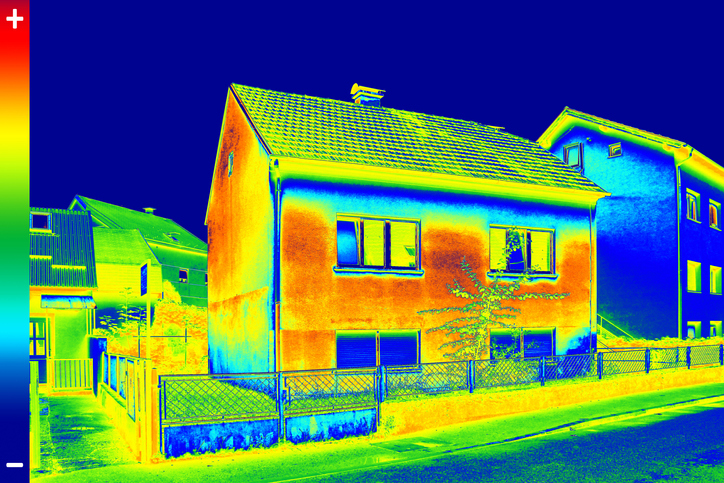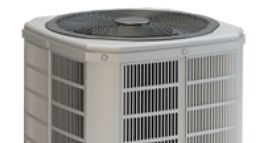All houses lose heat. But some houses lose heat more heavily than others. When your house constantly loses heat, it can raise your utility bills. Even worse, it can put strain on your heating system, causing it to break down. A Home Service Plan can address these issues, but we want to show you some ways to address these problems. That’s why we’ve put together a guide to help you identify, diagnose, and prevent house heat loss yourself.
How Can I Tell If I Have Heat Loss Issues?
There are three easy ways to determine whether your house suffers from excessive heat loss.
- Do you feel drafts around your doors and windows?
- Are there gaps around outlets and fixtures?
- Is there a lack of frost on your roof when your neighbors’ roofs have frost?
If you notice any of these issues, you’re likely losing excessive amounts of heat. This can force you to run your heater for longer and at higher temperatures. When this happens, your heater is much more likely to break down sooner than you’d expect. So, what can you do to prevent heat loss in your house?
How to Fix Heat Loss Issues
There are several ways you can start reducing heat loss in your home right now.
- Add weather stripping around doors and windows.
- Put plastic shrink insulation on windows to reduce drafts.
- Caulk all cracks around windows, outlets, fixtures, and door trim.
- Hang heavy drapes or curtains.
- Beef up attic insulation.
- Seal all ductwork.
With the right materials, you can begin taking some of these steps to reduce how much heat your house loses. Next, let’s look at where your house is most likely to lose heat from.

Problem #1: Cracks in Walls, Windows, and Doors
Cracks in walls, doors, and windows are the top cause of house heat loss. If you notice such cracks, seal them with caulk or foam (whichever is appropriate), and install weather stripping around doors and windows.
A quick fix for drafty windows or sliding glass doors is installing heavy drapes. Heavy drapes help trap more heat in your home. According to the Department of Energy, draperies can prevent up to 10% of heat loss in a home. Think of draperies like a warm winter coat for your windows.
Framed Walls and Heat Loss
Another common cause of heat loss is your frame walls. Over time, the insulation in your frame walls can degrade. This makes heat loss more noticeable. Unfortunately, this is one area where you’ll need professional help outside of your Home Service Plan coverage. A professional can look up your insulation to determine whether you need to upgrade it. They can also help you determine whether you should have loose fill or blown-in cellulose, fiberglass, mineral insulation, or spray foam.
Problem #2: Cracks and Holes in the Attic
The second most common reason for heat loss is also one of the easier and cheaper fixes. When you find cracks or holes in your attic, there are two ways to fix them.
- Seal all of your attic’s cracks and holes with caulk or insulation
- Ensure that you have enough insulation
These simple fixes can make your home much more efficient and warmer. This can save you money on heating bills and prevent your heater from overworking.
Problem #3: Basement and Subfloor Walls
Did you know that your basement walls can be responsible for up to 20% of your home’s heat loss? This is especially true if you have an unfinished basement. If you have an unfinished basement and don’t plan on getting it finished, insulate its walls to prevent heat loss. You can use rigid foam insulation boards that are several inches thick directly against the concrete wall.

Let 2-10 HBW Protect You!
Heat loss can do more than make you uncomfortable. It can also overwork your heater. Before your heater breaks down from overworking, consider a Home Service Plan through 2-10 Home Buyers Warranty (2-10 HBW). A 2-10 HBW Home Service Plan can protect your budget and your home against unexpected breakdowns to your systems and appliances.









